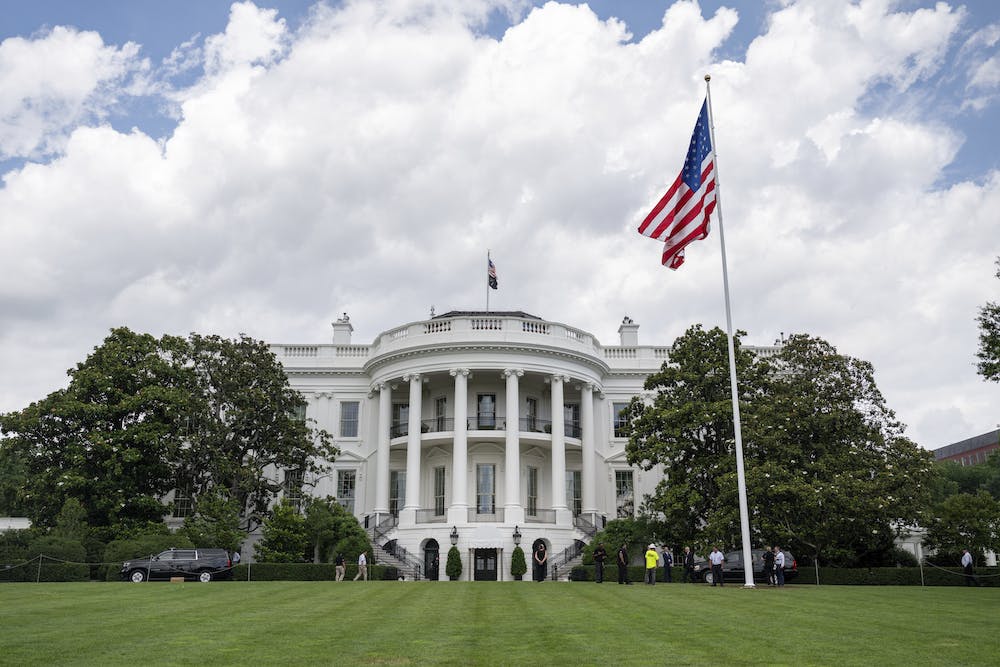NSF Funded 500 New AI Programs in 2023 With More to Come
The research community is tackling critical challenges in artificial intelligence, including trust and societal applications.

The National Science Foundation is working on several training and development programs for artificial intelligence as it works to meet some of the directives outlined in the White House executive order.
One of those key programs is launching a pilot of the National AI Research Resource (NAIRR), a concept for a research infrastructure that will connect researchers to trustworthy AI resources.
“A lot of the goals of this pilot are not just to expedite resources, but also to essentially pilot the way that we do this as a national infrastructure,” said Tess DeBlanc-Knowles, staff associate for technology policy and strategy at NSF, during the GovAI Summit in Arlington, Virginia, Wednesday.
DeBlanc-Knowles presented alongside NSF Division Director Michael Littman about the agency’s role in overall national AI priorities. Notable is the agency’s position in supporting the science and engineering community entirely through grants.
“The way that NSF helps this whole ecosystem is providing grants,” Littman said at the event. “We don’t have in-house researchers that are doing this work and building these systems.”
In fiscal year 2023, NSF funded over $800 million in AI-related activities across all 50 states, Washington, D.C. and Puerto Rico. That amounted to about 500 new AI projects.
Some examples of the type of work the agency funds falls in four verticals, including supporting the next generation of AI technology, advancing trustworthy AI, applying AI to solve social challenges, and developing and upskilling the workforce.
NSF has several efforts it is funding to build trustworthy AI, including the Safe Learning-Enabled Systems challenge. That program, which will give awards next month, aims to introduce to software development a culture of safety that is already prevalent in civil engineering, for example.
“There’s a huge history of failed projects that people have learned from to figure out how do we do this in a way that when we build the next one, it’s not going to harm anybody? That culture hasn’t made it all the way into software,” Littman said. “You want to make sure you can guarantee the safety of these systems, then you want to say, ‘And it will continue to be safe even as it learns.’”
Other AI programs include the NSF Engines program to support application of AI to broader challenges like mobility, climate-resilient food production and cybersecurity. The program made 15 awards totaling nearly $15 million in 2023.
The NSF Regional Innovation Program is another effort where the agency is focusing on creating an innovation ecosystem outside of the traditional technology hubs and around specific societal challenges.
DeBlanc-Knowles said within the next month, the agency will make its first round of awards for 2024 out of $150 million over the next seven years.
“We’re going to be investing in areas of research where there’s not yet a commercial incentive to invest in and new directions for the technology as well as AI applied to other fields,” DeBlanc-Knowles said. “We do that in a way that reaches the whole country, really focus on reaching those communities that might have been underserved by federal funding.”
This is a carousel with manually rotating slides. Use Next and Previous buttons to navigate or jump to a slide with the slide dots
-

Federal CIO: ‘The Shackles are Off’ for AI Innovation in Government
Federal CIO Gregory Barbaccia said the PMA encourages faster tech adoption, AI experimentation and simpler digital services for citizens.
3m read -

Agencies Take on IT Modernization
Navy and Marine Corps models show how outcome-driven modernization is reshaping federal IT.
20m read -

NIST Report Urges Measurable Outcomes for AI Standards
AI standards often lack clear metrics, according to a new NIST report that proposes a theory of change model to guide adoption and evaluation.
4m read -

AI-Based Tools Help Treasury Fight Fraud, GAO Report Says
GAO report singles out Treasury as an example of how agencies can use AI and data analytics to fight fraud and improper payments.
3m read








